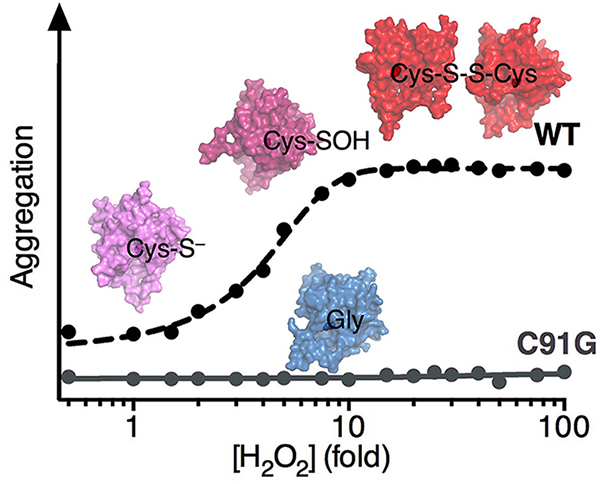
 中央研究院 生物化學研究所
中央研究院 生物化學研究所
Deubiquitinating enzymes (DUBs) form a large protease family involved in a myriad of biological and pathological processes, including ROS sensors. ROS-mediated inhibition of their DUB activities is critical for fine-tuning the stress-activated signaling pathways. Here, we demonstrate that the ubiquitin C-terminal hydrolase (UCH) domain of BAP1 (BAP1-UCH) is highly sensitive to moderate oxidative stress. Oxidation of the catalytic C91 significantly destabilizes BAP1-UCH and increases the population of partially unfolded form, which is prone to aggregation. Unlike other DUBs, the oxidation-induced structural and functional loss of BAP1-UCH cannot be fully reversed by reducing agents. The oligomerization of oxidized BAP1-UCH is attributed to inter-molecular disulfide bond formation. Hydrogen-deuterium mass exchange spectrometry (HDX-MS) reveals increased fluctuations of the central β-sheet upon oxidation. Our findings suggest that oxidation-mediated functional loss and increased aggregation propensity may contribute to oncogenesis associated with BAP1.
